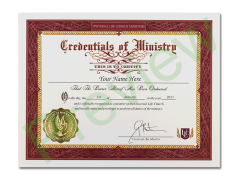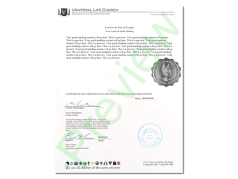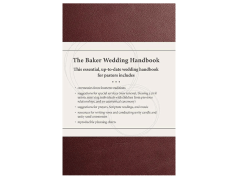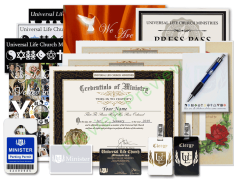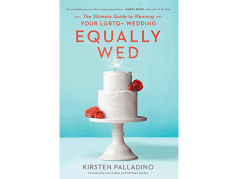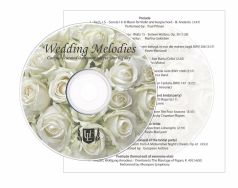How Much Should a Wedding Officiant Charge?
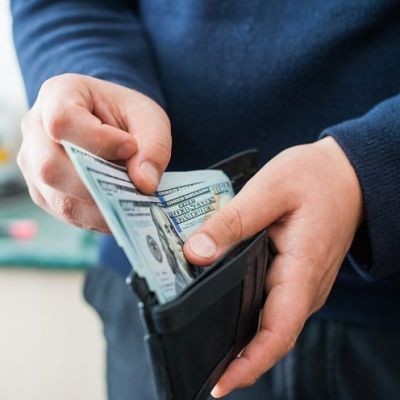
Officiating weddings is a tremendous honor, but did you know it’s also a lucrative part-time job? In today’s gig economy, more and more people are choosing to get ordained and perform weddings to earn some supplemental income. One distinct upside of this line of work is the flexibility. You can be your own boss, set your own hours, and take on clients at your own pace. It also pays handsomely – some officiants bring in upwards of $60k annually from wedding ceremonies alone!
Becoming a Professional Wedding Officiant
As the officiant, you’ll likely be removed from most of the craziness that surrounds wedding planning. That being said, there is still plenty of responsibility that will fall on your shoulders – such as making travel arrangements, finding a suitable outfit, and crafting a tailored ceremony script. And yet, those details are not what wedding officiants typically struggle with most.
One of the more common questions we see is this: “how much should I charge?”
There’s no black-and-white answer to this question. A reasonable fee will depend on a number of factors, which we’ll explore below.
Answering this question requires looking at a number of different factors that will affect the officiant fee. Here’s what you need to take into account:
1. Wedding Location
One of the most important variables is wedding location. In general, the more urban and upscale the area, the higher your fee should be. Just like the cost of services is higher in Los Angeles than it is in West Texas, a wedding officiant in a large metro region can expect to charge more than one operating in a small town or rural area.
Regarding destination weddings: if getting to the wedding requires significant travel on your part, the couple will typically cover your travel costs. However, because traveling can be a hassle, some officiants choose to charge additional fees for destination weddings. If travel is involved, it’s best to speak with the couple about this upfront to avoid any misunderstandings.
2. Ceremony Details
An officiant fee should also reflect the type of ceremony being performed. Has the couple requested a simple ceremony, or an intricate and lengthy one? Will it adhere to a standard format, or does the couple expect you to include additional elements that might necessitate extra practice and preparation? It’s important to understand what you’re agreeing to before deciding on a fair price.
3. Additional Duties
Along similar lines, sometimes the officiant will be asked to assist or participate in additional wedding events outside of the ceremony itself. Are you simply expected to attend the ceremony, or will your responsibilities extend to other areas? Knowing precisely what duties are being assigned to you is a must, so inquire about this early on in the process.
If your “to do” list starts getting long, it’s totally acceptable to bump up your officiant fee accordingly.
4. Friends and Family Discount
If you’re performing the ceremony for a friend or family member, you might choose to offer a reduced rate for your services, or perhaps even waive the fee entirely. It’s quite common for an officiant to perform the ceremony as a wedding gift to the couple, but at the end of the day this is entirely up to you.
Conversely, if you’re not close with the couple and were specifically hired to be their officiant, then you shouldn’t feel pressured to offer them some sort of discount. Do a good job, and charge the market rate for your services.
5. Experience Level
Experience also matters. The more weddings you have under your belt, the more you can reasonably charge. A seasoned officiant with a solid brand and name recognition in the industry might charge $700 – or more – for a single ceremony.
Novice officiants, on the other hand, will probably charge much less. But as you begin gaining experience and spend time honing your craft, it only makes sense to boost your rates periodically.
6. Choosing A Fee
Taking all of these factors into account, you’ll now have to decide on a fee. A good general rule is this: the more that’s being asked of you, the more you should charge. Many officiants operate using a tiered pricing system for their services. This includes a base rate for simply officiating the ceremony, and optional price increases depending on the type of wedding being performed and what duties are involved.
To offer a benchmark, one 2016 estimate put the national average fee for a wedding officiant at $278. But again, this number can vary significantly based on the factors described above.
Whatever your philosophy or fee requirements, it’s best to settle on a price with the couple upfront so you can concentrate on what really matters: officiating an incredible wedding ceremony.
